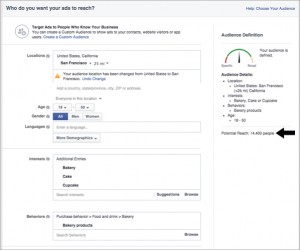
For lots of businesses, the big elephant in the room is always how to expand the revenue streams and incorporate new points of sales. At some point of time, these businesses will have to consider how they are going to integrate the mobile experience as an alternative point of sale or even whether they need to integrate a mobile shopping app at all. Mobile commerce apps are not just a big business thing. Increasingly, more small and medium-sized enterprises are seeing the business sense of having an effective mobile strategy that will help them boost their sales and they are seriously thinking about the potential of mobile apps. You will notice that a lot of small businesses now prefer interacting with you through the use of mobile apps, be it the taxi service or your favorite coffee shops. As per the Forbes article, mobile shopping app usage grew faster than any other category of apps.
Again, when it comes to creating new points of sales with the help of mobile, building the online shopping mobile app is just the easy part. The hard part is integrating it into your business systems and using it in order to generate revenues for the business. In what ways can a business embrace a mobile shopping app for ecommerce business and make it an integral part of the business? There are plenty of ways in which businesses can regularize the use of these shopping apps and convert them into more than just vanity items which add some reputation points to the business.
#1. Mobile App as a Customer Relationships Tool
A business will only grow its revenues exponentially if it has a great customer relations department which builds the brand equity of the business over time. There are mobile applications that can assist businesses in adding value to their customer relations strategy. Look at a problem that frustrates your clients the most and then try to solve it with the use of a mobile app in order to create a more qualitative experience.
#2. Using Mobile App as a Promotional Tool
There are mobile apps features that can be integrated into the app interface in order to remind the users of the latest offers, promotions and sale. Whenever there is some advantageous pricing, the business can reward its most loyal customers who use its apps by notifying them of these offers. This ensures that its highly valued clients do not miss out on the best deals.
#3. Use of Mobile Apps in Product Displays
Mobile apps utilize technologies that allow for highly versatile product displays. These offer better views and greater flexibility than the web apps used in the product displays. This is especially so when it comes to the Magento mobile app shopping cart. It is a quality that businesses can leverage in order to offer the end user a better shopping experience with some element of certainty as to the product that they are purchasing. This, naturally, leads to better conversion rates.
#4. Use the Mobile App in Building Loyalty and Engagement
Users who interact with a business via a mobile app will over time develop a “relationship” with your brand as well as brand loyalty. Businesses can leverage this engagement and loyalty by selling this to users through one-click reservations or one-click purchases of products and services. It is even possible to offer a subscription service where users can access members-only service and cultivate an even deeper relationship with the brand. Such users generally have no qualms buying into premium products and services in order to maintain their privileged status with the brand. A mobile app for online ecommerce store will make the loyalty schemes very easy to execute. After all, the users are interacting with the brand on the go. If this also includes a location-based or location-aware app, then this relationship can be taken to a whole new level of convenience. It is even possible to take this further through up sells where businesses can leverage the interaction and loyalty in order to squeeze in a few new sales.
#5. An App as a Direct Marketing Channel
One of the advantages of the mobile apps over other marketing channels such as websites, blogs or newsletters is that you are able to push your product offerings to your customers directly through notification pop-ups as opposed to waiting for the customers to search for you. The potential buyer is not expected to go through the “discovery” phase of your brand or even perform a manual search. Rather, they get notifications in a very nuanced way from that application which they have subscribed to. Messages for the “app user only” can come to the app subscribers and this generally has a very good rate of conversion. The storefront is directly on their palms.
These are just some of the examples on how mobile shopping apps can be embraced in ecommerce business, but there are countless other innovative ways in which businesses deploy these. Whatever you come with will only be limited by your imagination, while the app lends itself to multiple integration possibilities in the business processes.
Digital & Social Articles on Business 2 Community(172)
Report Post





